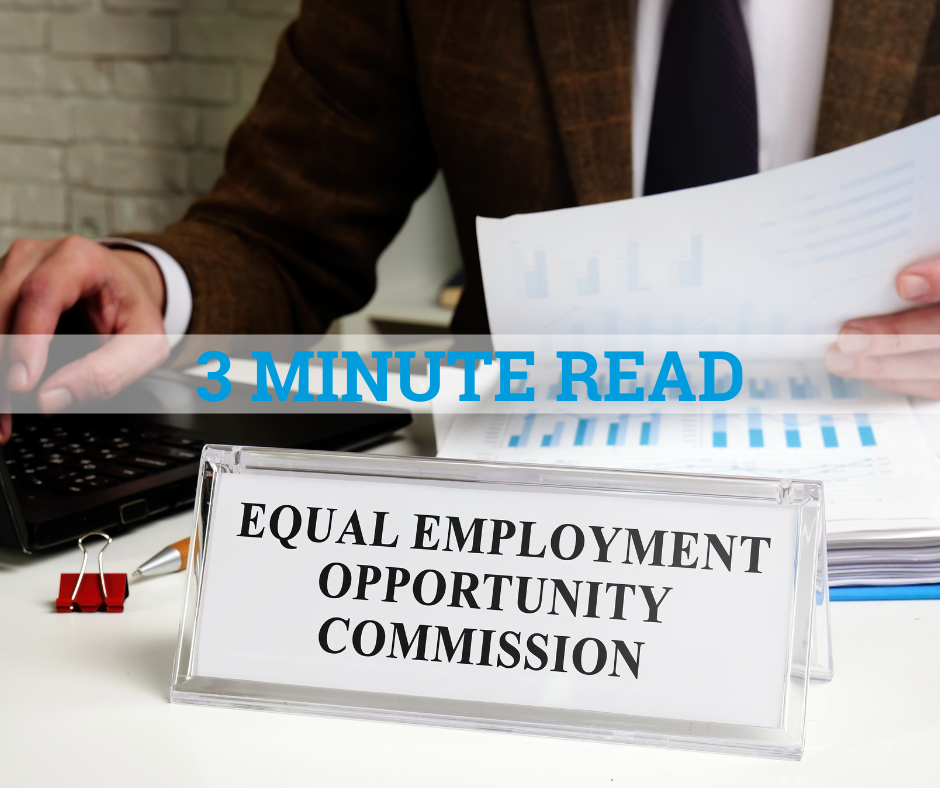
In an era of relentless job market transformations, the U.S. Equal Employment Opportunity Commission (EEOC) is expanding a roadmap for 2024-2028. Their recently unveiled Strategic Enforcement Plan (SEP) emphasizes their commitment to safeguarding the rights of American workers, particularly in the face of new challenges brought about by artificial intelligence (AI), pregnancy-related issues, and the long-lasting effects of COVID-19.
A Fresh Perspective On Discrimination
The updated SEP is not just business as usual; it represents a forward-thinking approach to addressing employment discrimination. The following is what you need to know about the EEOC’s strategic priorities:
- Tackling discrimination head-on: The EEOC will focus on discrimination, bias, and hate directed against religious minorities, racial or ethnic groups, and LGBTQ+ individuals. This commitment underscores the agency’s dedication to ensuring equal opportunities for all.
- Expanding the safety net: The agency aims to expand the vulnerable and underserved worker priority to encompass more categories of workers who may be unaware of their rights or historically underserved by federal employment discrimination protections. This shift promises to extend protection to those who need it most.
- Adapting to new challenges: The SEP recognizes the need to address emerging issues, including pregnancy, childbirth, and related medical conditions, the long-term effects of COVID-19 symptoms, and technology-related employment discrimination. As technology plays a pivotal role in hiring processes, the EEOC is poised to safeguard workers from AI-driven biases.
- Advancing workplace diversity: The underrepresentation of women and workers of color in specific industries remains a concern. The EEOC plans to spotlight these disparities in sectors such as construction, manufacturing, finance, and technology.
- Technology and the workplace: Acknowledging the increasing use of technology, especially AI and machine learning, in recruitment and hiring, the EEOC will ensure that these tools do not perpetuate discrimination but promote fairness and inclusivity.
- Protecting legal rights: The EEOC is committed to preserving access to the legal system. This includes addressing overly broad waivers, releases, nondisclosure agreements, or non-disparagement agreements that might restrict workers’ ability to seek remedies for civil rights violations.
A Collaborative Approach
The SEP isn’t just about enforcing compliance; it’s about fostering a collaborative environment. It encourages employers to proactively identify and remove barriers to equal employment opportunity. This means cultivating diverse talent pools, dismantling obstacles to progress, and creating inclusive workspaces.
Informed By The People
The EEOC didn’t arrive at these strategic priorities alone. They hosted three listening sessions, engaging with nearly three dozen representatives from various backgrounds, including civil rights and workers’ rights organizations, employers, HR professionals, and legal experts. This inclusive approach ensures that the SEP reflects the concerns and experiences of those directly affected by workplace discrimination.
A Two-Pronged Approach
The SEP works hand in hand with the EEOC’s overarching strategic plan. Together, they create a comprehensive framework for advancing the agency’s mission. This includes increasing accessibility to the public, enhancing training and resources for investigations, and focusing on key areas such as sexual harassment, pay discrimination, and the impact of AI in the workplace.
EEOCs And PEOs
As we navigate the complex terrain of evolving workplaces, it’s essential to recognize the pivotal role that a professional employer organization (PEO) can play in this transformative landscape. PEOs like GMS offer a strategic partnership, providing businesses with the expertise needed to navigate compliance, HR challenges, and the nuances of an ever-changing employment landscape. By leveraging the power of GMS alongside the EEOC’s vigilant efforts, we can pave the way for workplaces that are not only compliant with the law but also truly inclusive, diverse, and equitable. Together, we can march forward, ready to face the challenges of AI, pregnancy-related issues, and the long-term effects of COVID-19 with unwavering determination, knowing that the EEOC and PEOs stand as guardians of workplace equality and justice. Contact us today to learn more.